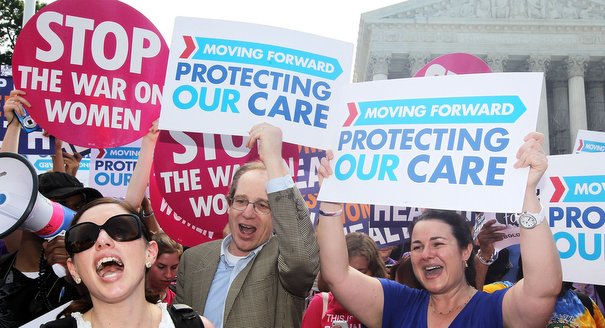Now that Barack Obama will remain in the White House for another four years, there are hopes that the transatlantic relationship will be revived.
Besides security, the special relationship between Europe and the United States has been based on shared values of democracy, the state of law, and the free market.
That relationship has come under strain in recent years, not just because the Cold War is over. The war in Iraq, the Guantanamo Bay detention center, and the euro crisis, have exposed deep cultural differences between both sides. Here they are, a list from a European perspective that is certainly incomplete and also presented in no particular order.
Most Americans support the death penalty. On November 6, in California, Proposition 34, an initiative to replace the death penalty with a sentence of life without parole, was narrowly defeated by a vote of 53% to 47%.
They believe torture is acceptable in war.
They believe in projection of military force first, and soft power second.
They oppose gun control.
They are intrinsically optimistic.
They are stoical. Look at how they pick themselves up after natural catastrophes.
They believe in opportunity. Aspiring immigrants dream of obtaining a Green Card in order to work and settle in the United States.
They believe individuals hold the key to success and happiness. They scorn Europe’s reliance on the nanny state.
They take religion seriously and abortion remains a big issue.
They are extraordinarily philanthropic and generous. Look how universities, hospitals, research centers, museums, and foundations are funded.
They invest in innovation.
They take risks.
They invest in talent.
They are mobile.
Unions are distrusted.
The cost of medical care is prohibitive, yet compulsory medical insurance is controversial, as Obama knows all too well.
Vacations are short, and maternity leave is minimal.
Climate change is not a big issue.
Despite all of those differences, Americans are culturally and politically still our closest allies in the world. And it’s not a bad thing, either, if our outlook on life gets challenged every so often.









